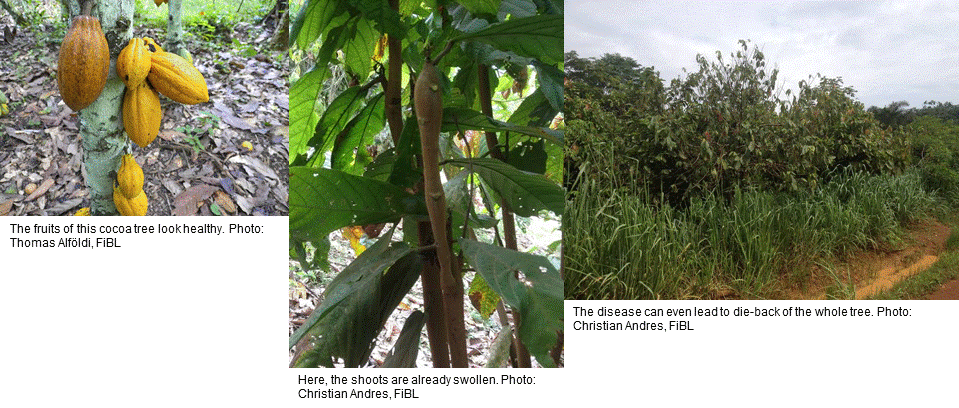Cocoa Swollen Shoot Virus Disease
Transdisciplinary systems research to develop a holistic approach to reduce the spread and impact of cocoa swollen shoot virus disease in Ghana (TransdisCSSVD)
Ghana is among the world’s top producers of cocoa (Theobroma cacao), with livelihoods of 800’000 farm families’ depending on the crop. The Cocoa Swollen Shoot Virus Disease (CSSVD) is one of the major factors limiting cocoa productivity, and the only treatment is to cut out infected trees. Since 1946, the national eradication program has cut out more than 250 million trees. Research has focused on breeding for resistant varieties, establishment of barriers with immune crops, and “vaccination” with a mild virus strain.
Despite these efforts, CSSVD is still prevalent and farmers’ adoption of apparently promising approaches remains limited. Therefore, farmers and other relevant stakeholders need to be involved from the very beginning in the development of future feasible interventions.
TransdisCSSVD aims at:
- Quantitatively consolidating 75 years of research about the most promising CSSVD control options (meta-analysis),
- Identifying the main constraints for adoption of available CSSVD control options (farmers’ perspective),
- Filling an important knowledge gap about the contribution of cocoa production systems’ diversification to reducing the spread of CSSVD (e.g. agroforestry; landscapes fragmentation with hedgerows, etc.).
Dissemination activities include transdisciplinary workshops with policy makers to determine feasible ways of adapting the existing CSSVD prevention and control program. Furthermore, farmer field days and exchange workshops may stimulate implementation of results on the ground.
For further information contact Johan Six ()
Project partners

